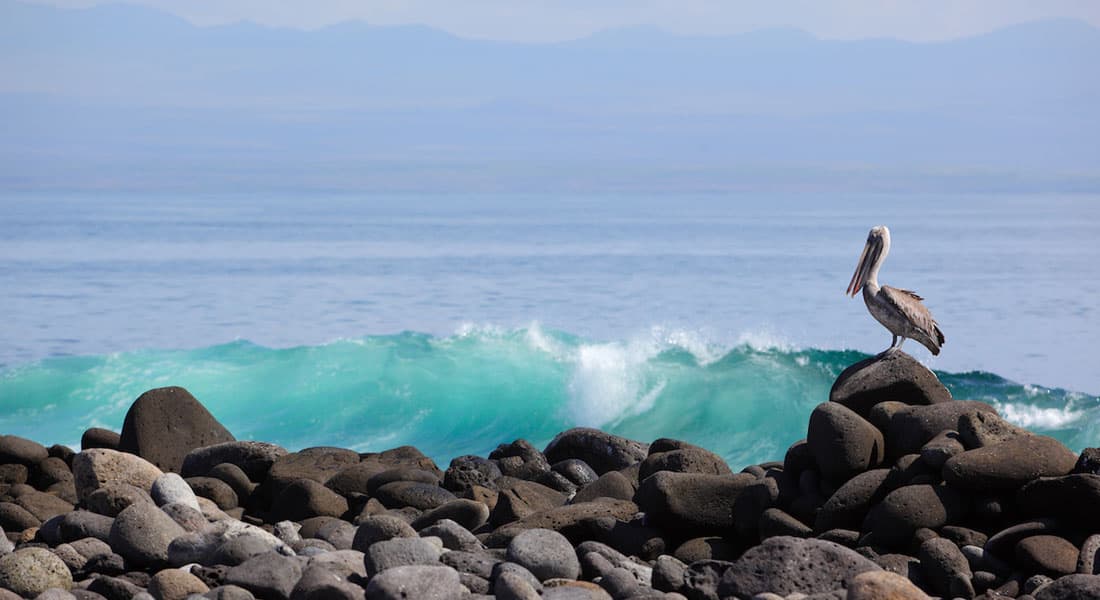
18 Nov Their Own Words: Galápagos Math Team
From October 3 to 7, 2016, teachers in Galápagos had an opportunity to become students. Teams of experienced educators from at least six countries in North and South America offered lessons on best teaching practices for the subjects of mathematics and science. The following are reflections by three members of the math team.
T2T-I thanks them for their contributions both in Galápagos and in putting their thoughts on paper upon their return home. We also thank Jonathan Drake for his stunning photographs.
From Monica Castro Wright, Math Teacher at the Colegio Menor San Francisco de Quito, Ecuador
This week was a great experience for me; teachers in Galápagos were, in general, more open to receiving ideas. I would love to do it again. I worked on project-based learning in mathematics, sharing the projects I have done with my students, which use Galápagos topics such as conservation.
Teachers worked in collaborative groups and discussed how to design projects for their math classes. We also discussed the importance of having students work in collaborative groups and explored the richness of using an interdisciplinary approach to mathematics learning.
By the end of the week, each group presented a design of their own creation to use in their classrooms, including a theme, a driving question, and an explanation of the math. I do feel that this type of workshop has an impact on the teachers.

A pelican surveys the shoreline on Santa Cruz
From Beatriz Quintos, Professor of Education at the University of Maryland
Early Monday morning, with a high atmosphere mist, the bus picked up the teachers, and some taxis picked up the instructors. All of us instructors had been planning for months, and finally the time had come. Teachers split into two groups, some heading to a week of learning at Tomás de Berlanga school and others to El Colegio Galápagos.
Quickly we established a sense of community. It was essential for our team to create a safe, trusting environment to work towards the common goal: educating the Galápagos’ children. Teachers shared their expertise—an important element, because no one knows the Galapagos’ students and their families better. In order to create meaningful learning, we needed to connect math to students using real-life examples. Mathematics without a live context quickly becomes sterile and archaic.
Furthermore, children already have a wealth of knowledge. It is our role as educators to connect to it, draw upon it, and expand it, while simultaneously preserving its power. To that end, we engaged the Galapagueño teachers in role plays, simulations, problem-solving, and critical discussions about content and pedagogy. Together we imagined new ways of teaching, a different learning experience than most of us had. Anyone making this shift alone faces an insurmountable task; however, as a community we felt empowered.

A blue-footed booby in mid-flight on Seymour Island
From Carolina Napp-Avelli, Professor of Education at the University of Maryland
The first thing we did was to spend a good hour or more just talking with the teachers, letting them introduce themselves, tell us what they teach, who their students are, etc. It was very important for me to start acknowledging who the teachers are and what they are concerned about. This conversation allowed us to later make connections between what we had planned and their concerns and experiences in their classrooms (such as students’ lack of motivation). We even changed some of the workshops we had planned to address some of their concerns.
I love to work with Teachers2Teachers-International, because I feel that my goal as part of T2T’s team is not to “dump knowledge” on the teachers but rather to develop a relationship with them — a true collaboration. I feel free to spend time on something like this that I consider important.
I think we may have made some impact in teachers with the workshops we have done, but I am convinced that just the workshops twice a year are insufficient to change teachers’ practice and beliefs. What I think will really make an impact is the combination of our workshops with the work that the coaches will do on a regular basis in between. I believe this is a crucial component of the program. It would be great to be able to keep working with the coaches throughout the year to develop a true collaboration:
- discuss how the work she does relates to the work we have done in the workshops
- share more materials and resources
- get feedback from the teachers and the coach about what was more/less useful, what other needs they may have in terms of content and/or pedagogy
- develop realistic and purposeful goals for the next round of professional development
I absolutely enjoyed the trip! Every second of it was super intense but super rewarding. I loved to work with the teachers, and I would love to go back and keep working with them. This has been an incredible experience for me.

A lava lizard on Mosquera Island
No Comments